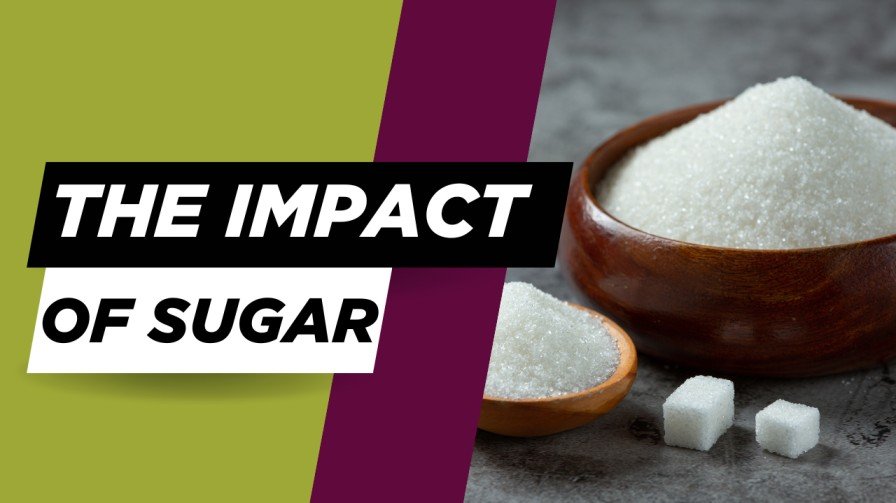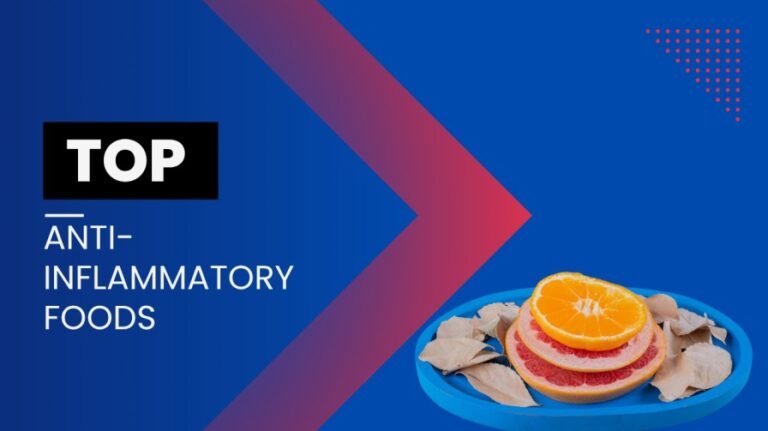The Impact of Sugar on the Body and How to Reduce It

Sugar is one of the most consumed ingredients in the modern diet. Found in everything from soda and candy to pasta sauce and bread, sugar is both widely available and highly addictive. While it may taste good and provide a quick burst of energy, the long-term effects of sugar on the body can be harmful. Excessive sugar consumption has been linked to a range of health issues, including obesity, type 2 diabetes, heart disease, liver problems, and even cognitive decline. Understanding how sugar affects the body and learning strategies to reduce sugar intake can significantly improve your overall health and well-being.
Understanding Sugar: Natural vs. Added Sugars
Sugar is a type of carbohydrate that the body converts into glucose to use for energy. It comes in various forms, including:
- Natural sugars: Found in fruits (fructose), vegetables, and dairy products (lactose).
- Added sugars: Sugars and syrups that are added to foods or beverages during processing or preparation. These include table sugar (sucrose), high-fructose corn syrup, honey, and more.
Natural sugars are generally not a problem when consumed in whole foods like fruits and vegetables because these foods also contain fiber, vitamins, and minerals. The real concern lies with added sugars, which offer empty calories with no nutritional benefit.
How Sugar Affects the Body
1. Weight Gain and Obesity
One of the most immediate and visible effects of excess sugar consumption is weight gain. Sugary foods and beverages are high in calories and low in nutrients, which can lead to an increased overall calorie intake. Additionally, sugar can interfere with the body’s natural hunger-regulating hormones, such as leptin, which tells the brain when you’re full. This can cause you to eat more than you need.
Furthermore, sugar-sweetened drinks do not promote the same feeling of fullness as solid food, leading people to consume more calories without realizing it. Over time, this excess can lead to weight gain and obesity.
2. Increased Risk of Type 2 Diabetes
Consistently high sugar intake can lead to insulin resistance—a condition in which the body’s cells become less responsive to insulin. Insulin is the hormone that helps regulate blood sugar levels. When cells resist insulin, the body has to produce more of it to maintain healthy blood sugar levels. Over time, this can lead to chronically high blood sugar and eventually type 2 diabetes.
Type 2 diabetes is a serious condition that increases the risk of heart disease, kidney failure, nerve damage, and other complications.
3. Heart Disease
Excessive sugar intake has been linked to an increased risk of heart disease. High sugar consumption can lead to obesity, inflammation, high blood pressure, and high triglyceride levels—all risk factors for heart disease. Research has shown that individuals who consume 17% to 21% of their daily calories from added sugar have a 38% higher risk of dying from cardiovascular disease compared to those who consume less.
4. Liver Damage
When sugar is consumed in large amounts, especially in the form of fructose (found in high-fructose corn syrup), it can overwhelm the liver. The liver metabolizes fructose and converts it into fat. Excess fat can accumulate in the liver, leading to non-alcoholic fatty liver disease (NAFLD). NAFLD is a condition where fat builds up in the liver without the influence of alcohol and can eventually lead to liver inflammation, scarring, and even liver failure.
5. Tooth Decay
Sugar is a primary contributor to dental cavities and tooth decay. When sugar is consumed, especially in sticky or liquid forms, it feeds harmful bacteria in the mouth. These bacteria produce acid that erodes tooth enamel, leading to cavities. Children and adolescents are particularly vulnerable due to high consumption of sugary snacks and drinks.
6. Skin Problems
Excessive sugar intake may contribute to acne and premature aging. High blood sugar and insulin levels can increase the production of oils and inflammatory responses in the skin, which may worsen acne. Additionally, sugar can attach to proteins in the skin, forming harmful compounds called advanced glycation end-products (AGEs) that damage collagen and elastin, leading to wrinkles and sagging skin.
7. Mood and Mental Health
Consuming large amounts of sugar can cause mood swings, irritability, and energy crashes. Over time, it may also contribute to mental health issues such as depression and anxiety. Studies suggest that high sugar diets are associated with an increased risk of developing depressive symptoms, especially in adults.
8. Addictive Effects
Sugar can be addictive for some people. When consumed, sugar triggers the release of dopamine in the brain—a feel-good chemical associated with reward and pleasure. This process can create a cycle of cravings and overconsumption, similar to the effects seen in drug addiction.
How to Reduce Sugar Intake
Reducing sugar intake doesn’t mean you have to eliminate all sweetness from your life. The key is to cut down on added sugars and make healthier choices. Here are practical strategies to help reduce sugar consumption:
1. Read Nutrition Labels
Check food and drink labels for added sugars. Look for terms like sucrose, glucose, corn syrup, honey, molasses, and fruit juice concentrate. Be mindful of “healthy” foods like granola bars, flavored yogurt, and cereals, which often contain hidden sugars.
2. Limit Sugary Beverages
Sodas, energy drinks, sweetened teas, and fruit juices are some of the biggest sources of added sugar. Replace these with water, herbal tea, or sparkling water with a splash of lemon or fruit for flavor.
3. Choose Whole Foods
Focus on whole, unprocessed foods like fruits, vegetables, whole grains, nuts, seeds, and lean proteins. These foods are naturally low in sugar and rich in nutrients.
4. Cut Back on Desserts and Sweets
Enjoy sweets in moderation. Instead of eating dessert daily, save it for special occasions or opt for healthier alternatives like fruit, dark chocolate, or homemade treats with less sugar.
5. Cook at Home
Preparing meals at home allows you to control ingredients and avoid hidden sugars. Many restaurant meals and pre-packaged foods contain more sugar than expected.
6. Use Natural Sweeteners (in moderation)
Instead of refined sugar, consider using natural sweeteners like stevia, monk fruit, or small amounts of honey or maple syrup. Keep in mind that even natural sweeteners should be used sparingly.
7. Eat More Fiber and Protein
High-fiber and protein-rich foods slow digestion and help maintain stable blood sugar levels. Include foods like beans, lentils, eggs, lean meats, and whole grains in your meals.
8. Be Mindful of Sauces and Condiments
Ketchup, barbecue sauce, salad dressings, and marinades often contain hidden sugars. Choose low-sugar versions or make your own at home.
9. Gradually Reduce Sugar
If you’re used to consuming a lot of sugar, start by reducing it gradually. This can help your taste buds adjust and reduce cravings over time.
10. Get Support
Changing eating habits can be challenging. Consider working with a nutritionist, joining a support group, or asking friends or family to join you in making healthier choices.






